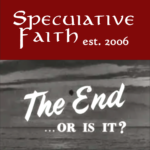Biblical Discernment: Focus
 Rebecca LuElla Miller recently wrote on our need for discernment in our novel reading. Really, it applies to all our entertainment, no matter the venue or whether it is labeled Christian or not.
Rebecca LuElla Miller recently wrote on our need for discernment in our novel reading. Really, it applies to all our entertainment, no matter the venue or whether it is labeled Christian or not.
That discernment is found through a familiarity with the Bible. So I figured what better way to put that discernment into practice than to do a series of articles on passages in Scripture that aid us in developing Biblical discernment in what entertainment choices we make.
To start, we’ll look at a verse frequently quoted when it comes to reading speculative fiction:
Finally, brethren, whatsoever things are true, whatsoever things are honest, whatsoever things are just, whatsoever things are pure, whatsoever things are lovely, whatsoever things are of good report; if there be any virtue, and if there be any praise, think on these things. (Phil. 4:8)
Context
In chapter 3, Paul has effectively laid out the mindset, lifestyle, and expectation of the Christian in such well-known statements as this:
Brethren, I count not myself to have apprehended: but this one thing I do, forgetting those things which are behind, and reaching forth unto those things which are before, I press toward the mark for the prize of the high calling of God in Christ Jesus. Let us therefore, as many as be perfect, be thus minded: and if in any thing ye be otherwise minded, God shall reveal even this unto you. (Phil. 3:13-15)
With those thoughts in mind, Paul then says in Phil. 4:1,
Therefore, my brethren dearly beloved and longed for, my joy and crown, so stand fast in the Lord, my dearly beloved.
He then proceeds in the following verses to explain how they are to “stand fast in the Lord.” Verse 8 is one of the prescriptions Paul gives us to accomplish that goal. This purpose is important in applying this verse to our entertainment choices.
The Application
This verse is often quoted in response to those who favor gritter fiction, dark fiction, or horror. The idea is if a story contains elements that don’t fall into the categories of being true, honest, just, pure, lovely, good report, virtuous, praise-worthy; then it is not spiritually healthy for a Christian to partake.
There may be some truth at times, but this needs to be brought within a wider context of Scripture. Because in Scripture we find depictions of people and acts that would in no way fit into any of those categories.
As one example, consider the story of Noah. There are tragic and dark moments in that story, both in the depiction of man before the flood, and the reality that millions or billions of men, women, children, babies, and various animals died in the flood. That’s a massive amount of people and animals God killed off, and I’m sure it was not a pretty sight to behold.
“But Noah’s story teaches us some truths about God!” some will refute.
Bingo! It is clear it is the overall message which should lead us to the constructive areas of thoughts that will benefit our Christian walk, not the individual details, no matter how sinful, dark, or gory.
Point is, if we apply Paul’s words to the Bible itself in this manner, we must apply them the same to all thoughts that we expose our minds to. Include the speculative fiction we read.
It isn’t the presence of “icky, bad stuff” that we are to avoid thinking about, but rather discernment comes into play on what that stuff, icky or not, leads us to focus on, what truths it formulates in our minds.
The discerning question then isn’t does this story contain people doing and saying bad things, but rather does this story lead me to focus on and believe things that are not true, honest, just, pure, lovely, good report, virtuous, and praise-worthy?
If the answer is yes, then discernment says this is not beneficial to one’s ability to stand fast in the Lord, even if the book is backed by big-name Christians. Even if it contains “wholesome” content.
Likewise, a story that does lead one to focus on and believe in such thoughts is beneficial even if it might contain characters committing sexual sins or cussing.
This will vary from person to person as well. One person might be able to read a sex scene and not sin, but be led to focus on a greater virtue in contrast to the sin depicted. Another, due to past temptations and proclivities, might be tempted to fulfill their lust upon reading, and be led to focus on impure and immoral thoughts and actions.
If we keep in mind the immediate goal—to stand fast in the Lord—we can use Phil. 4:8 to guide us in making the best entertainment choices that support that goal, or at least don’t negatively impact it. It is the cumulative impact of the story upon us that becomes the deciding factor.
How does this verse help you in choosing what to read?
What future verses would you like to see me tackle?











































I think “discernment” has become a pretty useless buzzword, since it’s come to mean “recoil in properly Christian horror at these icky bits and then avoid such bits as much as possible” in common usage, so perhaps we would be better off to use other words until it dies its buzzwordy death.
Though that does little to nothing to affect the reactionaryism that the buzzword typically signifies.
I’d refuse to let the word be defined that way. So what if some people think of it that way. That’s not what it means. Thus the need to define it more in line with Scripture rather than the influence of a sub-culture.
Hey, I just blogged about this last week! Exactly, specifically this – that Scripture verse and all! http://simmeringmind.com/think-about-these-things/
So, of course, I completely agree with your premise here. 😀 I look forward to seeing the rest of the series. I’d like to see you tackle 1 Tim. 1:3-4.
I would like to read how you connect your text to Titus 1:15:
Great pick on that verse, Bethany. I look forward to hearing commentary and discussion on that.
Even biblical accounts may need some consideration to find what can be celebrated as pure and holy. Think of the Tower of Babel. There’s no shiny Jesus moment. The text says the Lord blocked them from being able to do whatever they set their minds to. We may decide this is a good outcome based on what the rest of the Bible has to say about the nature of man. He would choose degradation.
The account has in view God’s negative action against them. The good, right, justice idea here is in the background enough that it requires a conscious effort to see. If you take the story as it is, it’s not explicitly stated that the Lord has done a good and pure thing here. You need the context of other parts of the Bible to find that aspect that is of “good report.”
Francis A. Schaeffer suggested there’s a major and minor theme (nothing to do with the musical definition of these terms) for someone with a Christian worldview to pursue: The minor theme is “the abnormality of the revolting world.” For Schaeffer, this includes man in revolt against God and the “defeated and sinful side to the Christian’s life.” In art of all sorts, non christians have explored this condition. Lord of the Flies comes to mind.
“The major theme is the opposite of the minor; it is the meaningfulness and purposefulness of life.” This includes God, who explodes the conclusion that all is absurd. There is meaning. Also, man was made in God’s image, and so he has significance.
These have to be in balance, of course. And Schaeffer pointed out that our culture has drastically emphasized the minor theme, so correction must be rendered accordingly.
Also, this passage makes me think of the Twila Paris song.